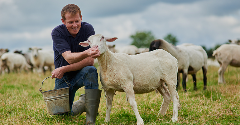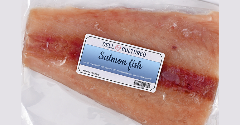News
German supermarket trials climate-centric pricing model
29 Aug 2023German discount supermarket Penny has trialled increasing product prices to mirror their health and environmental costs.
Leading German discount supermarket Penny has run an experiment charging consumers more for a selection of its products, prompting food insiders to explore the ‘climate cost’ and its impact.

On 31st July 2023, Penny announced it was running a trial in its stores, changing its pricing model to one that charged consumers its product’s ‘climate cost’. In what the supermarket has hailed as its “true costs” campaign, Penny said its week-long trial served as the basis for a trend-setting, European-wide study.
Penny teamed up with The Nuremberg Institute of Technology and the University of Greifswald to provide its 2,150 stores with databases and create a platform for a broader-based discussion about food prices.
Problematic pricing
“From the impact on health services to the significant effects on the environment, it is clear that negative externalities which arise from unhealthy and unsustainable food production and consumption, are not reflected in the prices consumers see on the supermarket shelves,” Emma Calvert, senior food policy officer at the European Consumer Organisation (BEUC) told Ingredients Network.
Penny differentiates food's “true costs” from current food prices as they include the consequential environmental and social costs created along supply chains during food production and are deemed “negative external effects”.
The supermarket’s campaign was led by the principle that every form of production and consumption impacts the environment. These hidden consequential environmental costs are unavoidably generated along supply chains. However, their presence is not reflected fully in the final products, services and food sale prices, and detailed information about offsetting these costs is non-transparent.
Adopted across all its stores from 31st July to 5th August, Penny charged the calculated “true costs” as the sales price for nine of its selected conventional and organic products.
Setting up the climate cost model
In preparation for adopting the climate change model in its stores and conducting its plan to identify the true costs of its products, the researchers added the impact of supply-chain factors such as soil, climate, water and health to the sales price of private-label products and vegan food items.
Based on these findings, the true costs of conventional, organic and vegan foods are included in the sales price to different degrees, the research team, led by Professor Tobias Gaugler and Dr Amelie Michalke, concluded. The organic products assessed have environmental consequential costs totalling an average of €1.15, the conventional products’ environmental consequential costs total an average of €1.57, and the vegan Food For Future Schnitzel’s environmental considerable costs reach 14 cents.
The researchers expect to receive comprehensive data about the campaign week, comparable weeks, and socio-demographic information as part of the trial. “We will use this information to develop recommended courses of action for various actors, in particular, to devise political policies that will facilitate a sustainable transformation of the food industry for both consumers and producers,” said Professor Tobias Gaugler of the Nuremberg Institute of Technology.
Problem-solving or profit-generating?
“At a time when the cost of living continues to bite for consumers, especially the poorest, it is vital that applications of true cost accounting are done so in a way which is socially just,” Calvert says. “Simply passing on the negative externalities in the form of price increases to shoppers mistakenly places the focus on the consumer as being solely responsible for shouldering the burden of unsustainable food production,” Calvert adds.
 © AdobeStock/Deemerwha studio
© AdobeStock/Deemerwha studio
Speaking to Ingredients Network, Daniela Haiduc, head of communications of EuroCommerce, cited the EuroCommerce/McKinsey State of Grocery Retail Report 2023, which found that in the midst of the ongoing cost-of-living crisis, healthy and sustainable products become less of a priority for consumers.
Rob Wreglesworth, an analyst at the Environment Bank, said in comments shared on LinkedIn that while “we all know we've not been paying the true cost for our food, primarily, we've not been accounting for the huge impact the production has on the environment”, there are obstacles that need to be overcome.
Firstly, there is limited scientific evidence for calculating climate costs for many products, which is necessary. However, some food producers have started, raising hope of a more rigorous understanding. Next, the Penny trial only accounts for its products’ climate impacts rather than including those that affect nature, leading Wreglesworth to question whether prices may rise further.
The climate cost model also raises questions about the potential impact on consumer buying behaviour and supermarket profits, ensuring it spurs real change for the planet and not just the purse strings. Lastly, Wreglesworth considers how the globe balances the need for affordable food with the need to reflect its true cost to our planet and health.
While these are considerations for consumers too, Wreglesworth states: “Consumers can drive some change, but the supermarkets have a huge role to play if we are to achieve environmental targets.”
More action needed to lower true costs
“True Cost Accounting should be used to ensure that other key actors such as policymakers can create more effective policies to lower the true costs of our food system,” Calvert adds.
“While the pricing experiment in Germany could offer an interesting insight for consumers and could raise awareness of the significant environmental costs of some foods, especially animal-based products, the trial was only applied for one week to a small handful of products out of the thousands available, while brand-name alternatives were unaffected.”
Related news

California companies required to disclose heavy metal content in baby food
10 Jan 2025
As of January 2025, baby food manufacturers selling in California must disclose test results for four heavy metals – arsenic, lead, cadmium, and mercury – via an on-pack QR code.
Read more
Snack trends, ingredient claims, and plant-based perceptions: Highlights from Fi Europe 2023, part 1
7 Dec 2023
Value-led snacking, sustainability storytelling, and the importance of having a ‘star ingredient’: we asked consumer analysts and market experts at Fi Europe about the trends and innovations that are shaping the food industry.
Read more
Confirmed: California bans four ‘toxic’ food additives
10 Oct 2023
Four food additives, including the colouring Red No. 3, will be banned in food in the US state of California over safety concerns, with public health campaigners hoping this will spark a nationwide ban in the coming years.
Read more
Advocacy groups condemn EU Commission for backpedalling on animal rights
3 Oct 2023
Amid rumours that the EU may abandon its plans to improve animal welfare in farming and end the use of cages, many stakeholders have condemned this possibility and urged the EU to reconsider.
Read more
Poland and Ukraine attempt to resolve grain dispute
29 Sep 2023
Poland and Ukraine have begun talks to try to resolve a dispute regarding the ban on Kyiv’s grain imports that prompted Kyiv to file a lawsuit to the World Trade Organization.
Read more
The EU may be set to scrap its sustainability commitments
27 Sep 2023
A speech delivered by President Ursula von der Leyen last week inferred that the EU could be drawing back on its commitments to create a more sustainable and healthier food system.
Read more
Industry first: Mosa Meat becomes first cultivated meat startup to gain B Corp certification
11 Sep 2023
A first for the industry, Dutch cultivated meat company Mosa Meat announced that it has received B Corp certification and will soon apply for regulatory approval across the globe.
Read more
EPR fee delay spurs concerns over UK’s sustainability commitment
8 Aug 2023
The UK government’s decision to push back the introduction of fees for the Extended Producer Responsibility (EPR) due to inflation has raised doubts about whether this sustainability commitment will ever be realised.
Read more
Latino-owned food startups tackle climate change
25 Jul 2023
A growing list of Latino-founded food and beverage startups in the US are putting sustainability at the forefront of their businesses for the sake of the planet.
Read more
Industry first: The Netherlands approves cultivated meat and seafood tastings
17 Jul 2023
The Netherlands has become the first country in Europe to approve tastings of cultivated meat and seafood in controlled environments, yet there is still a long way to go before widescale commercialisation is achieved.
Read more